(February 10, 2022) Born in Tanuku in Andhra Pradesh, Srivyal Vuyyuri nurtured big dreams: Study well, get an engineering degree, move to the US for higher studies and land a good job. Somewhere, things changed and he veered towards social entrepreneurship. He returned from the US to work at bettering the lives of children in need. Today, Sphoorti, a home he founded to support orphans and children with single parents, houses over 200 kids, with some having gone on to become doctors, engineers, and corporate employees.
The recipient of the Rotary Vocational Excellence Award 2014-15, life has given Vuyyuri his own ‘Ikigai’ to do good.
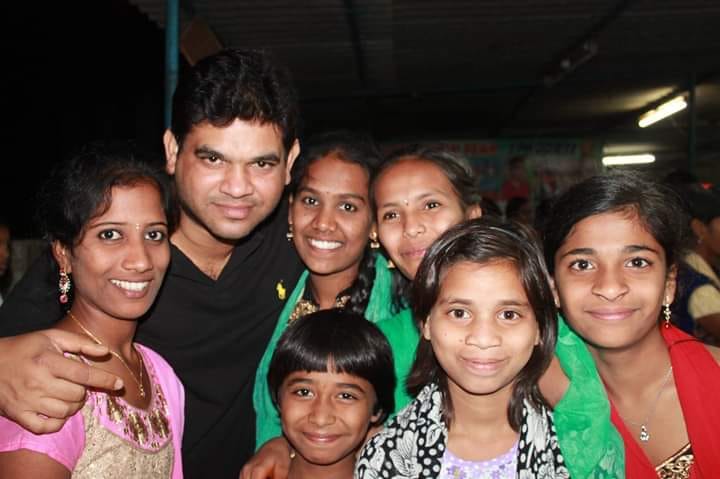
It began with a big fat dream
The journey has not been easy for the man who gave up the big fat American dream to help change the lives of hundreds of children. From a lack of funds, to today providing for children and their guardians during the pandemic, Srivyal has faced more disappointments and failures than successes. Yet, that made the social entrepreneur even more steadfast, “I have become humbler and more balanced. I have learnt to keep going in the face of adversity, never losing hope. As we reach out to more people in need, our responsibility has only increased.”
The boy from a small town
Born in 1977 in Tanuku, West Godavari, Srivyal moved to Hyderabad as his father worked at ECIL. Always a good student, he ranked second in the intermediate board exams in 1994, and went on to join BITS Pilani College for engineering. “A year into the course, I realised engineering wasn’t for me. So, I dropped out, and decided to pursue B.Com instead,” says the 45-year-old social entrepreneur, who landed his first job at Juno Online Services.
A stint in the US to pursue master’s in economics from Ohio University, he wanted to do a PhD, but decided to return to India in 2002.
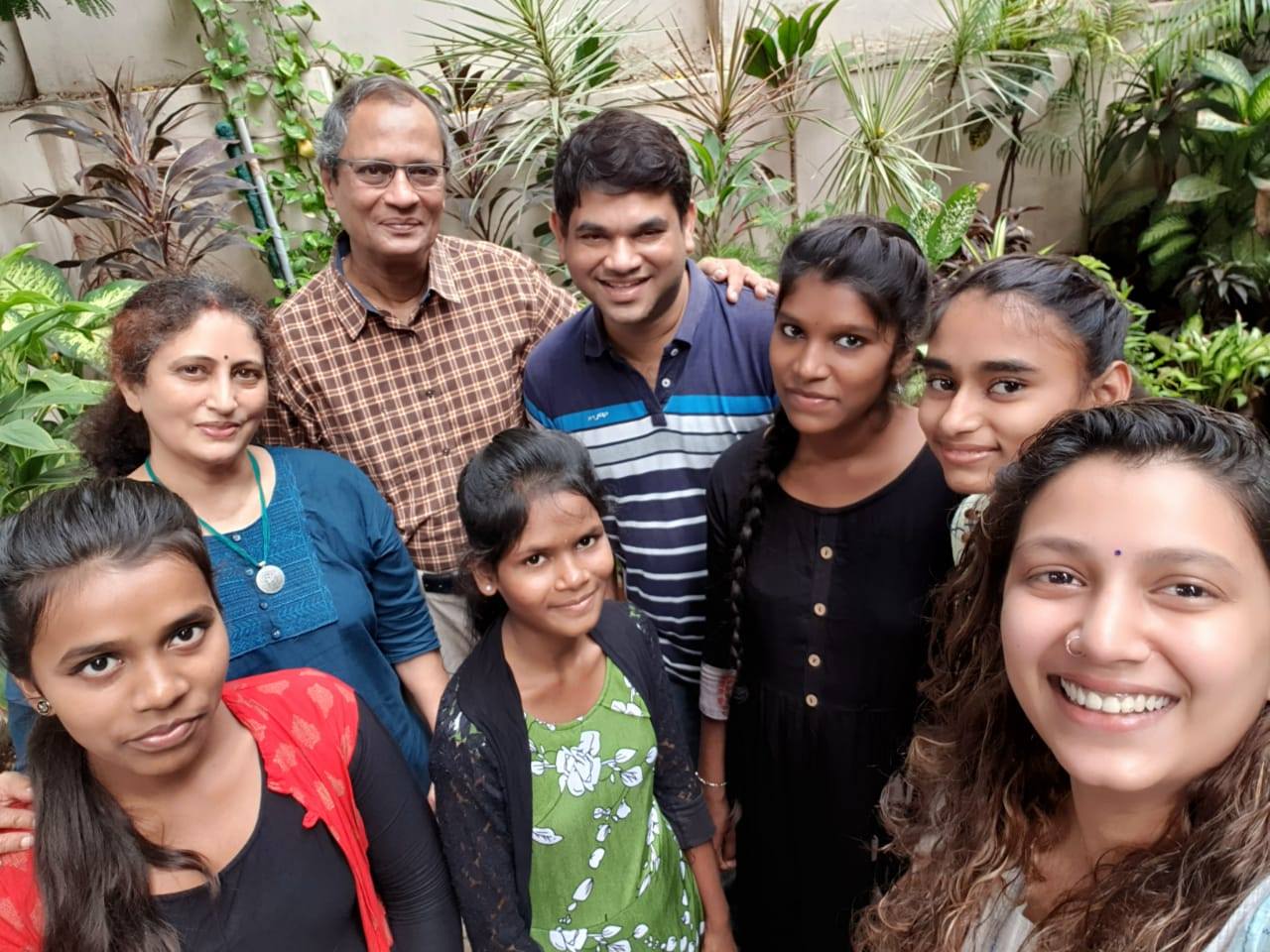
“I’d always wanted to do something hands-on for children,” he adds. His childhood, “Was loads of fun. I was crazy about movies, cricket and was a huge Chiranjeevi (actor) fan. We had great teachers and I have very fond memories of school. It was pure luck that I was born into a family that gave me a happy childhood. It was one of the reasons I kept thinking about children who do not have a pleasant childhood,” the social entrepreneur shares with Global Indian.
For the little children
Plunging headlong into social entrepreneurship, he began to give shape to his dream. “I’d always wanted to work with children, but never had the courage to. The original idea was to start a school for poor kids near my house. But it needed investment and experience, and I had neither. So, I decided to support kids who were already going to school but didn’t have parents. I wanted to provide them shelter,” he recalls.
The years 2004-5 were spent researching on setting up a non-profit. In 2006, he launched Sphoorti – a shelter for orphaned, abandoned, and destitute children in Cherlapally. Day one saw three kids at the shelter, a year later there were 35. Today, Sphoorti helps shelter and provide for over 250 children between the ages of six and 20.
“Initially, we depended on friends, the police and references to help find and shelter these kids. In the past few years, the District Child Welfare Committee sends children who need support, many single parent kids,” explains Srivyal.
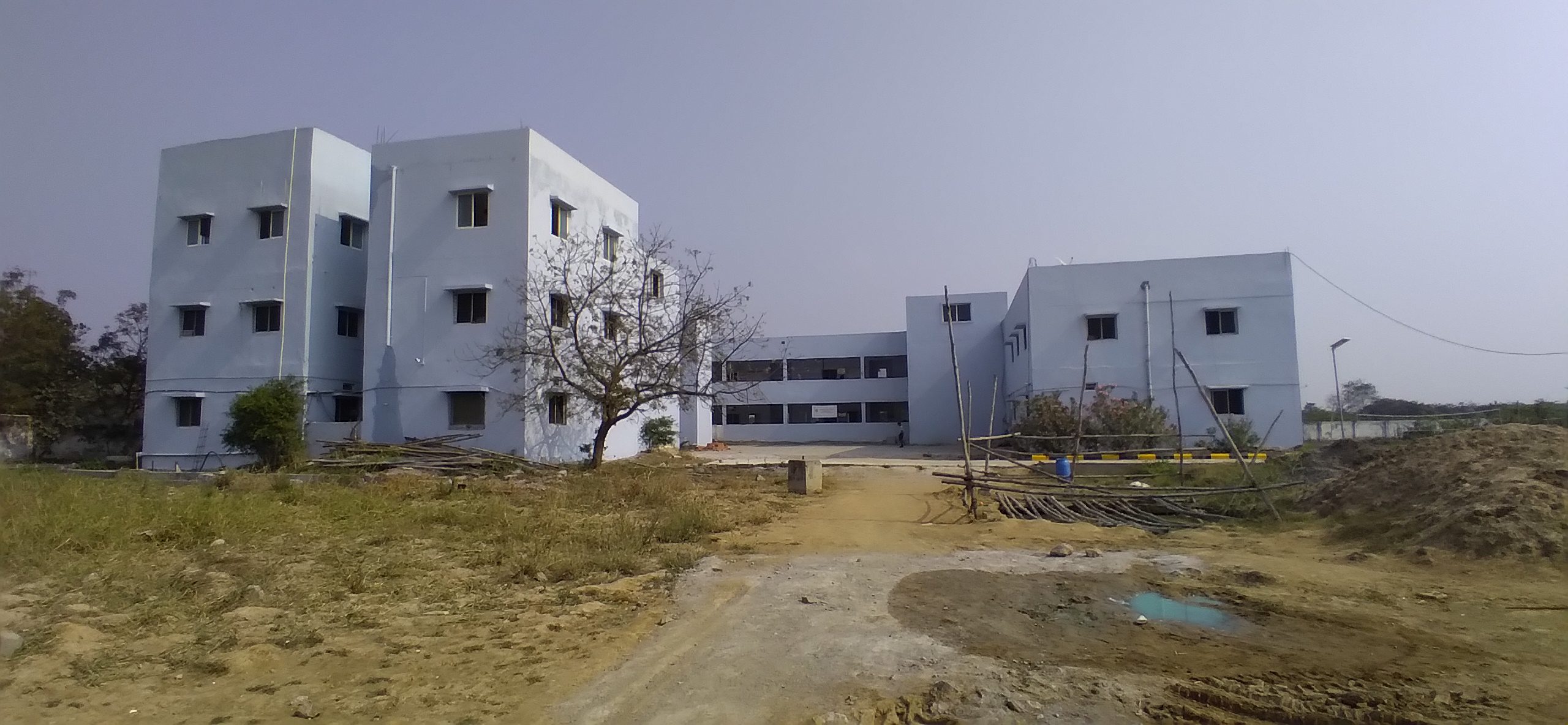
The new school site
The early days were fraught with uncertainty, ignorance and lack of funds. “Abhay Gangadharan, my manager from Juno was one of our first donors who gave me a cheque for $1,500. Soon, childhood friends chipped in too,” he adds.
Today, Sphoorti is on firmer footing. “From survival mode, we have moved to flourishing mode,” admits Srivyal. Sphoorti Model School began functioning in June 2021, but construction is still on (currently with class 1 to 7, and plans to go up to class 10, with extra curriculars). The school in Dundigal will also offer basketball and volleyball courts.
They are also planning an independent building for 1,000 children. “The idea is to provide free education and a midday meal to as many girl children as possible,” he explains, adding, “We will try for LEED – Platinum/Gold certification. It is an ambitious project, I hope we can make it a success.”
The pandemic threw things out of gear but Srivyal and his team kept helping children and their guardians with groceries. In the first wave, they gave groceries to over 8,000 families, and in the second and third wave, they distributed groceries and medicines in and around Tirupati. They also helped women who’d lost their husbands in the pandemic, rehabilitating them through tailoring courses. With 15 study centres in the slums of Tirupati and Madanapalle, children also got sustenance.
He is also working on a few new projects in Telangana and Andhra Pradesh.
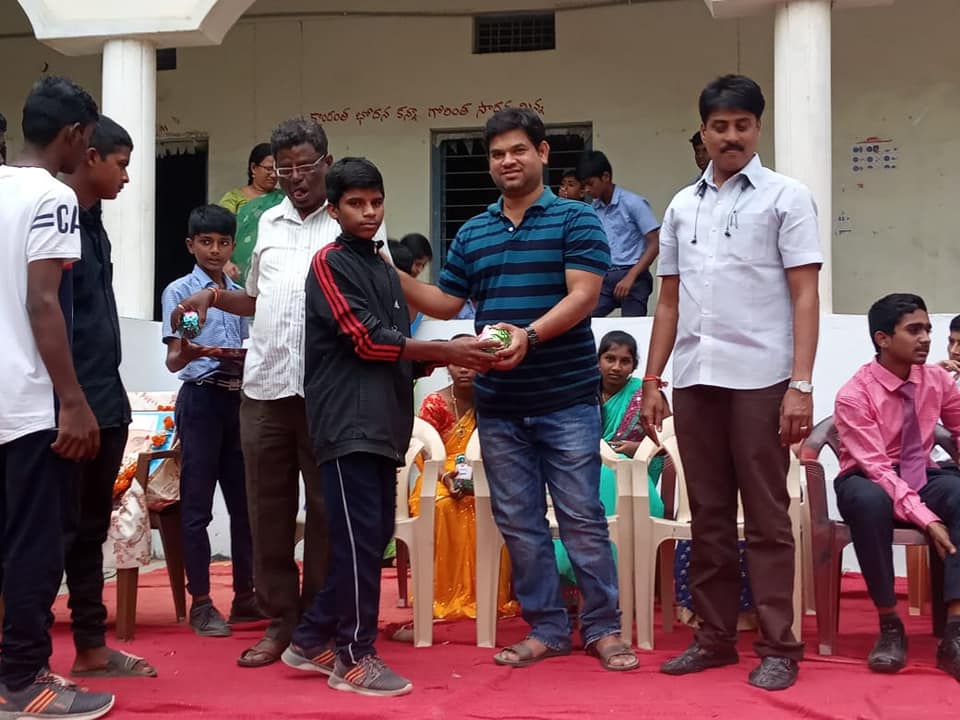
Charity begins with a thought
His wife, Venkateswari works closely with girls at Sphoorti. His 13-year-old son, Aditya, who grew up watching his parents work with children, is now determined to work in the social sector too.
The most fulfilling aspect for him is watching the children grow into fine individuals. “One of our kids landed a job at Cognizant. She had come to Sphoorti after both her parents succumbed to HIV/AIDS,” beams the social entrepreneur. Several others are pursuing other professional courses.
When he chose the social sector, his family was taken aback, especially his mother. “It (social work) was alien to most middle-class families. My father was unsure about my abilities – worried that if I messed up, I would be putting a lot of children in trouble,” he recalls. Today, his parents live on-campus, and help him strive higher.
- Follow Srivyal Vuyyuri on LinkedIn

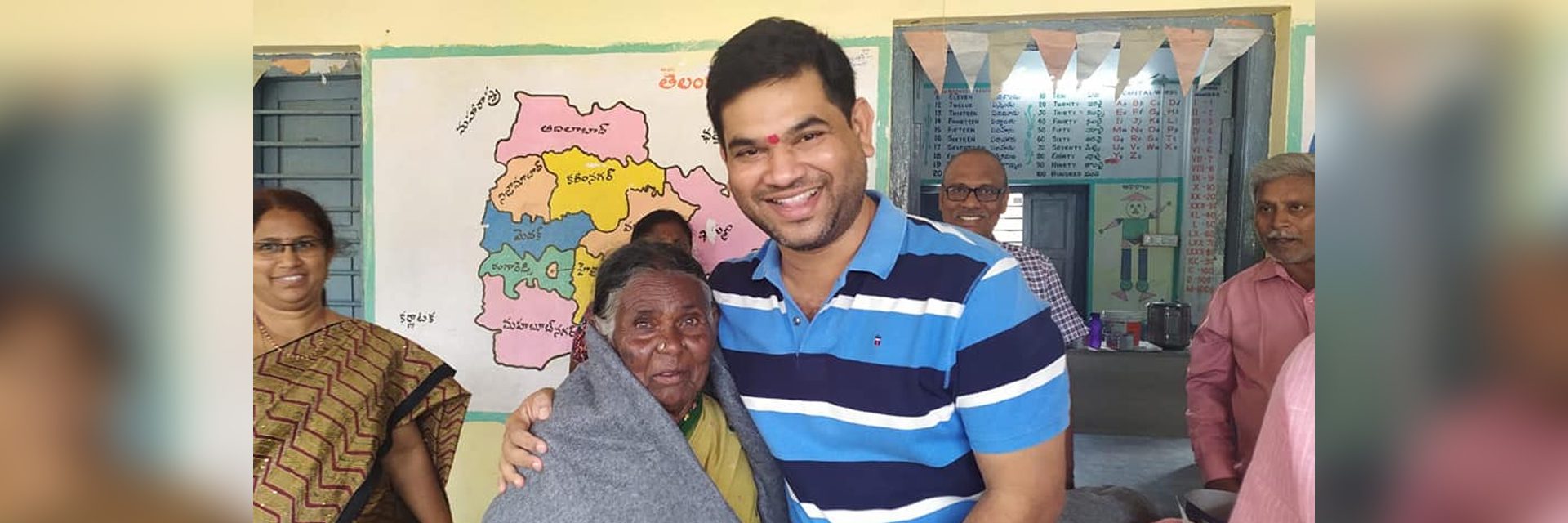
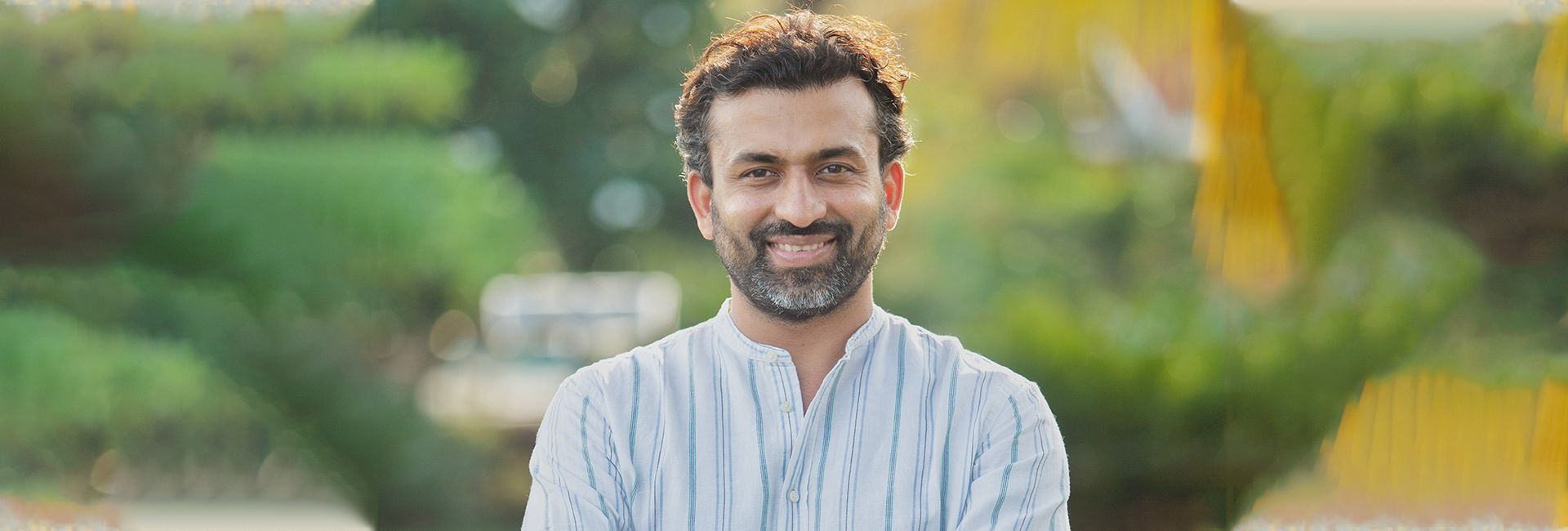
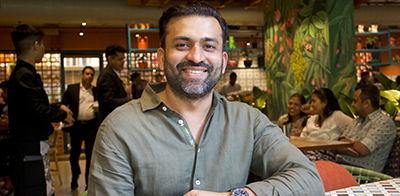 Ankit Gupta, co-founder, Hunger Pangs Private Limited[/caption]
Ankit Gupta, co-founder, Hunger Pangs Private Limited[/caption] The tea leaf salad, with avocado and laphet dressing[/caption]
The tea leaf salad, with avocado and laphet dressing[/caption]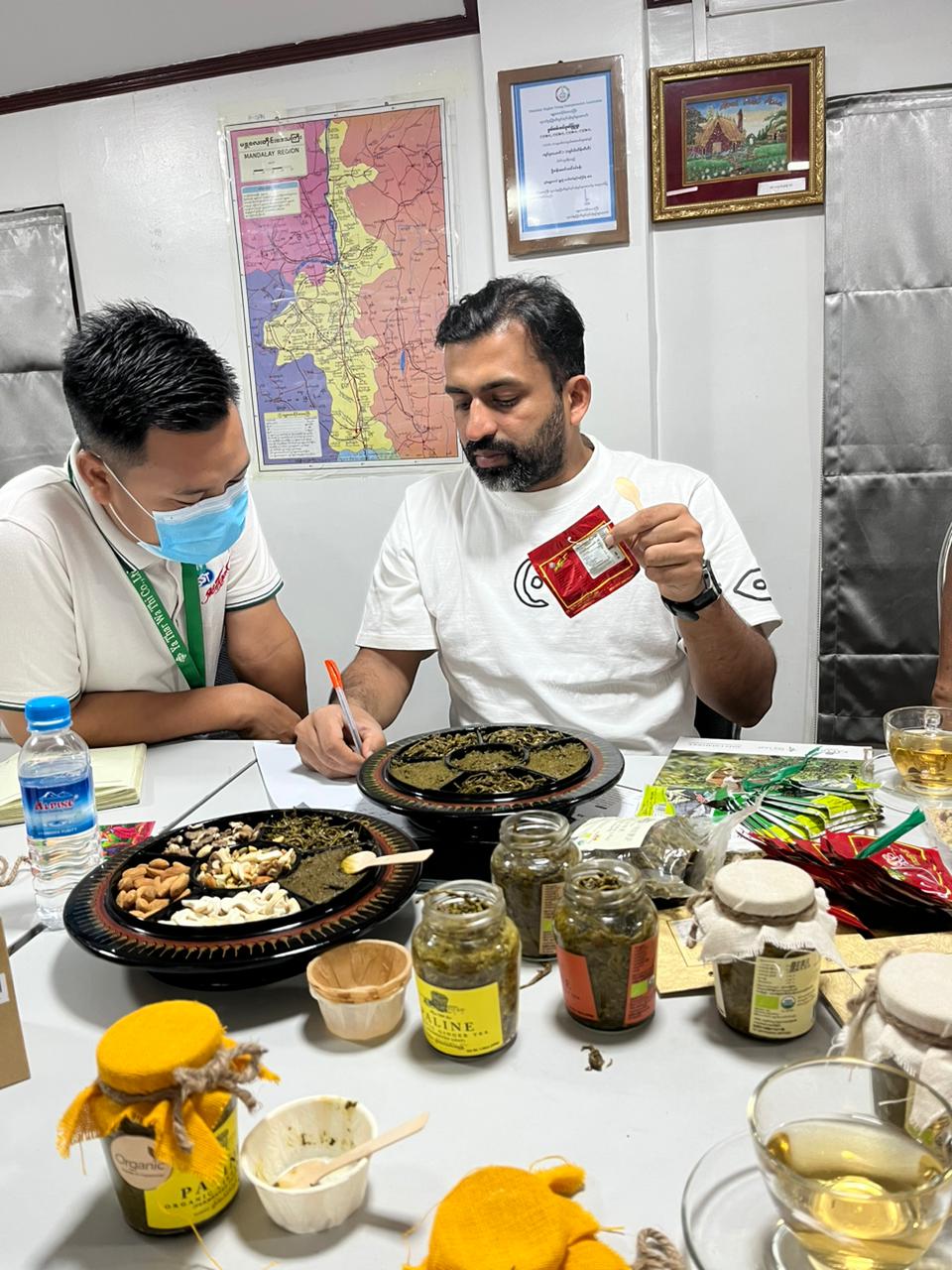

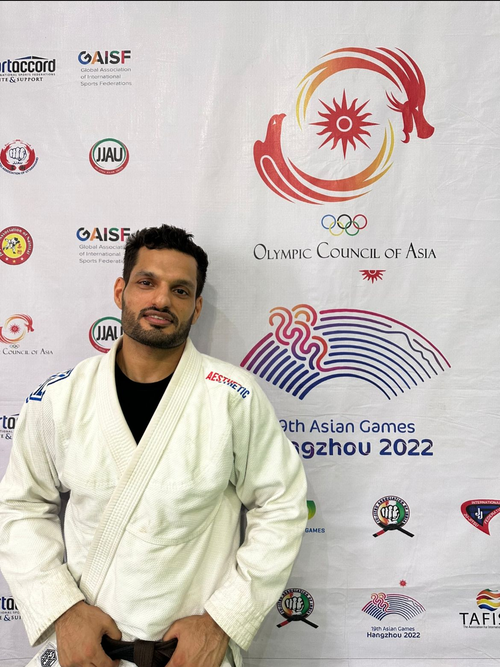 Siddharth Singh, Founder and CEO at Crosstrain Fight Club.[/caption]
Siddharth Singh, Founder and CEO at Crosstrain Fight Club.[/caption]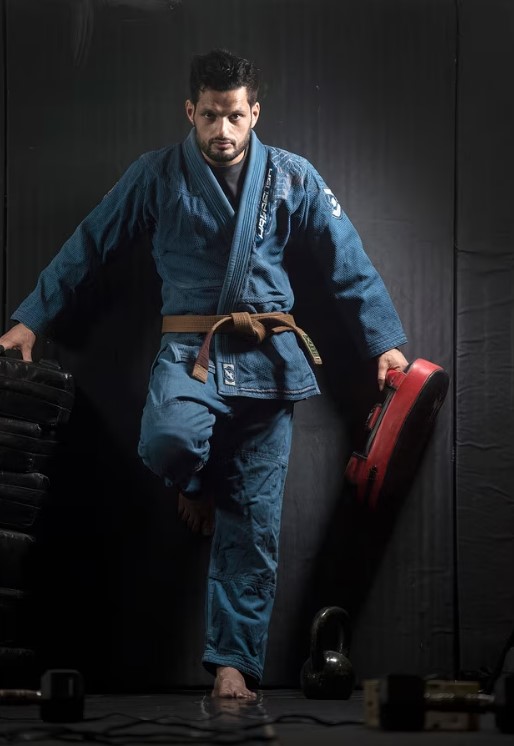
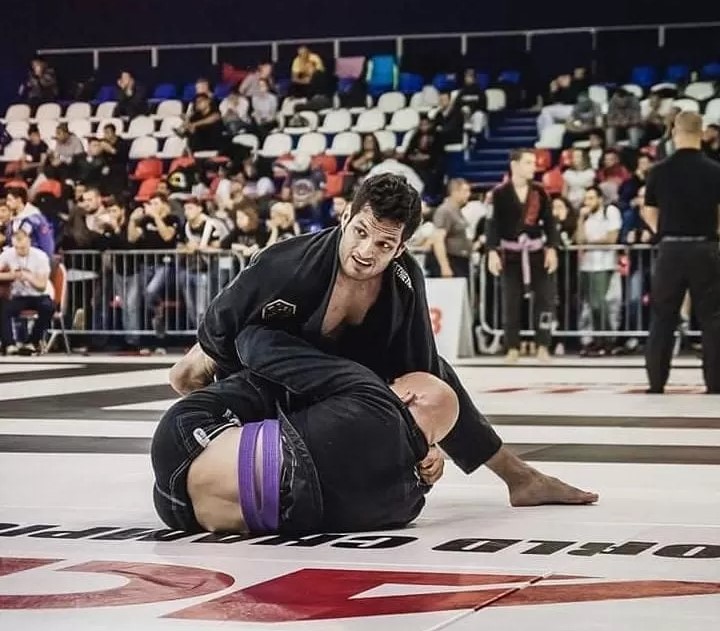

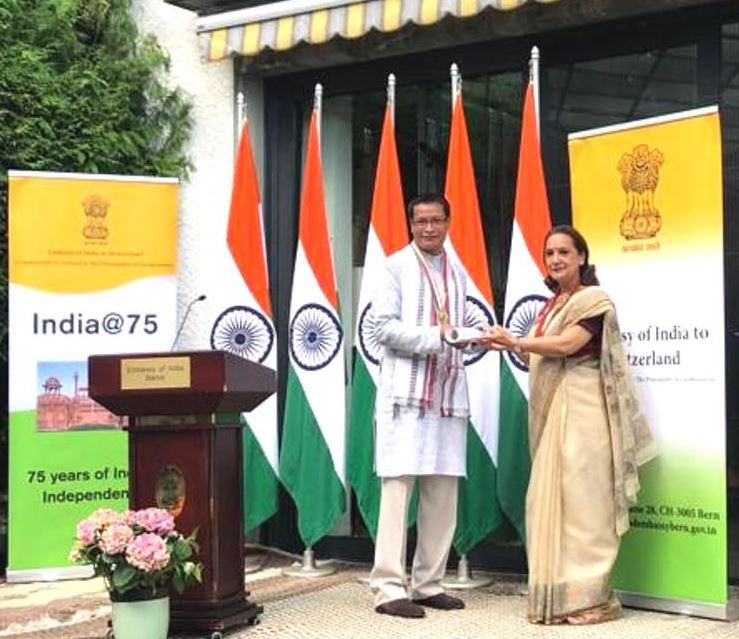 Dr Shachi receiving Pravasi Bharatiya Samman by the Indian Embassy in Bern, Switzerland. He was felicitated by Ambassador Monika Kapil Mohta[/caption]
Dr Shachi receiving Pravasi Bharatiya Samman by the Indian Embassy in Bern, Switzerland. He was felicitated by Ambassador Monika Kapil Mohta[/caption]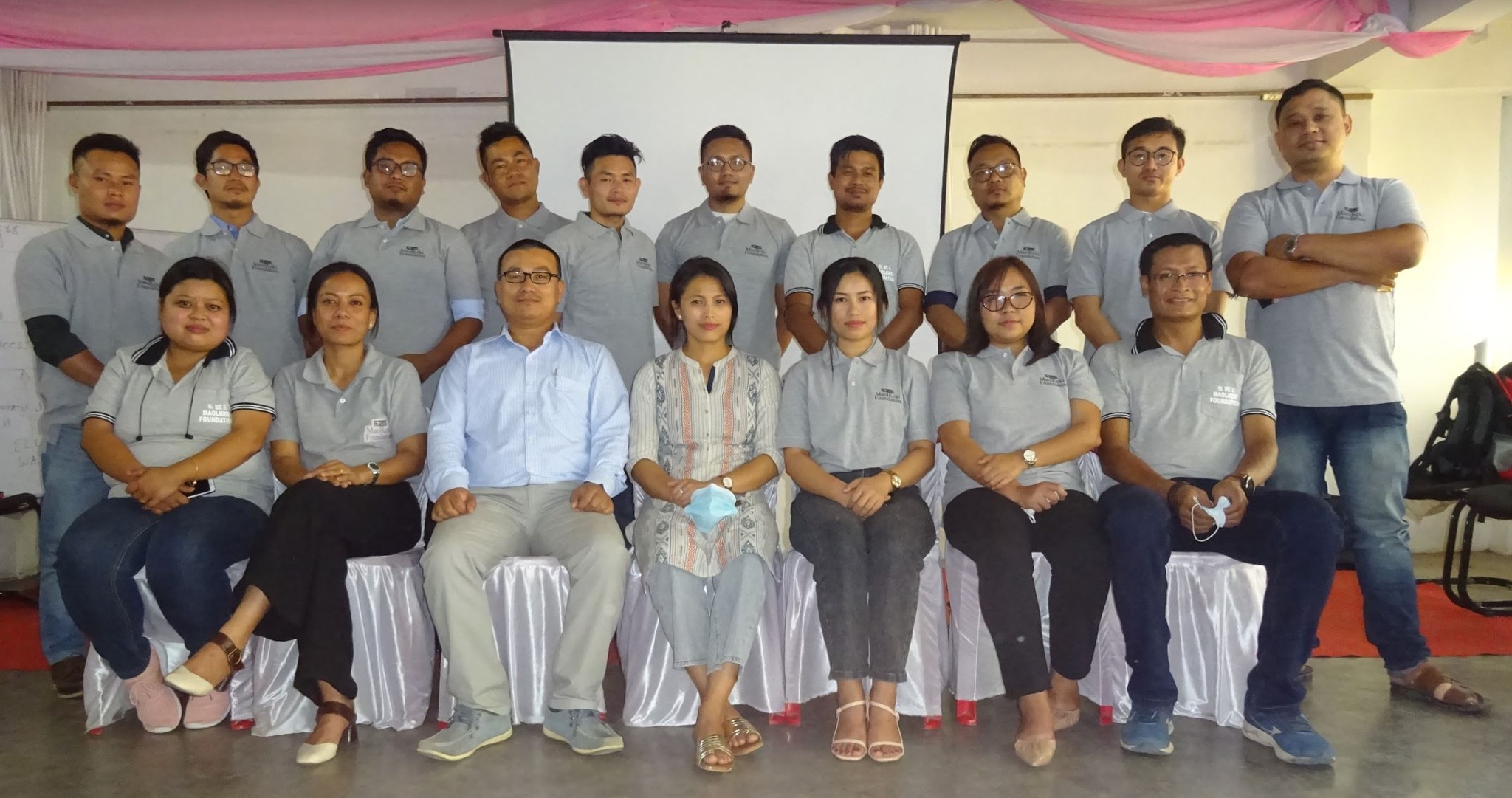 The Maolkeki Foundation team[/caption]
The Maolkeki Foundation team[/caption]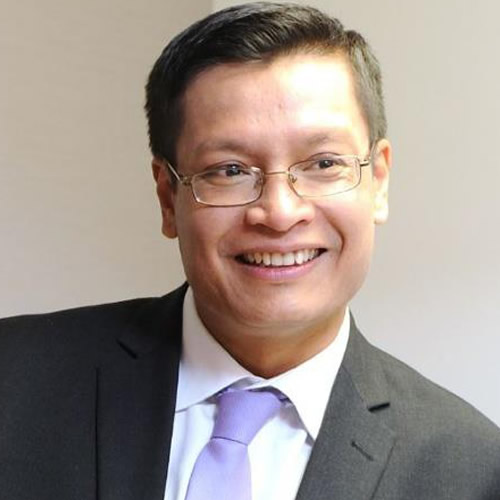
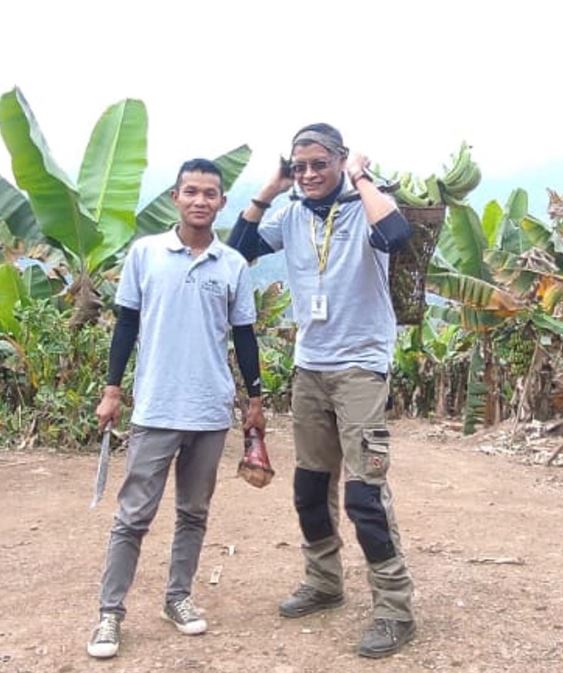 For Shachi, it was a moment to learn what farmers experience in carrying a 'sam' around![/caption]
For Shachi, it was a moment to learn what farmers experience in carrying a 'sam' around![/caption]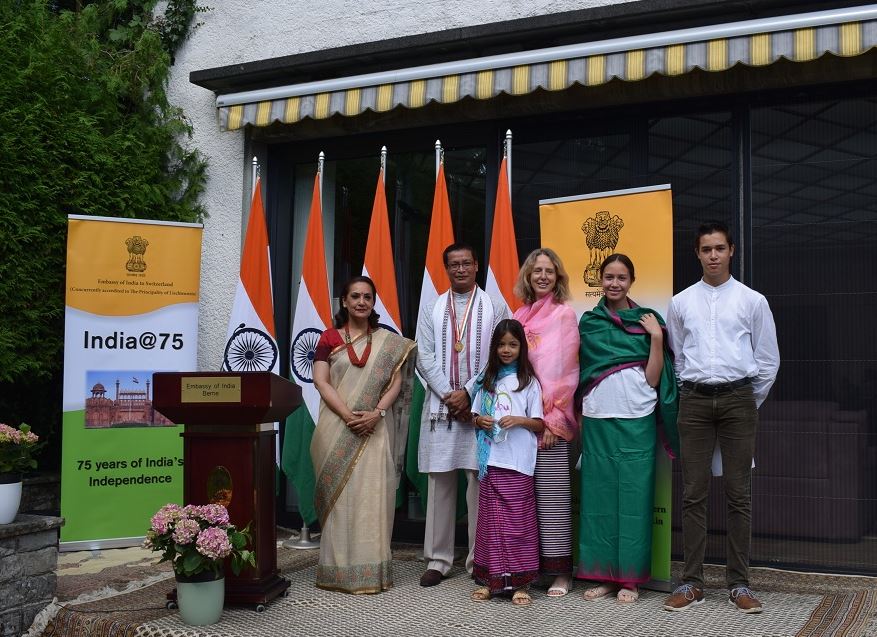 Shachi Gurumayum with his family during the Pravasi Bharatiya Samman ceremony at the Indian Embassy in Bern, Switzerland[/caption]
Shachi Gurumayum with his family during the Pravasi Bharatiya Samman ceremony at the Indian Embassy in Bern, Switzerland[/caption]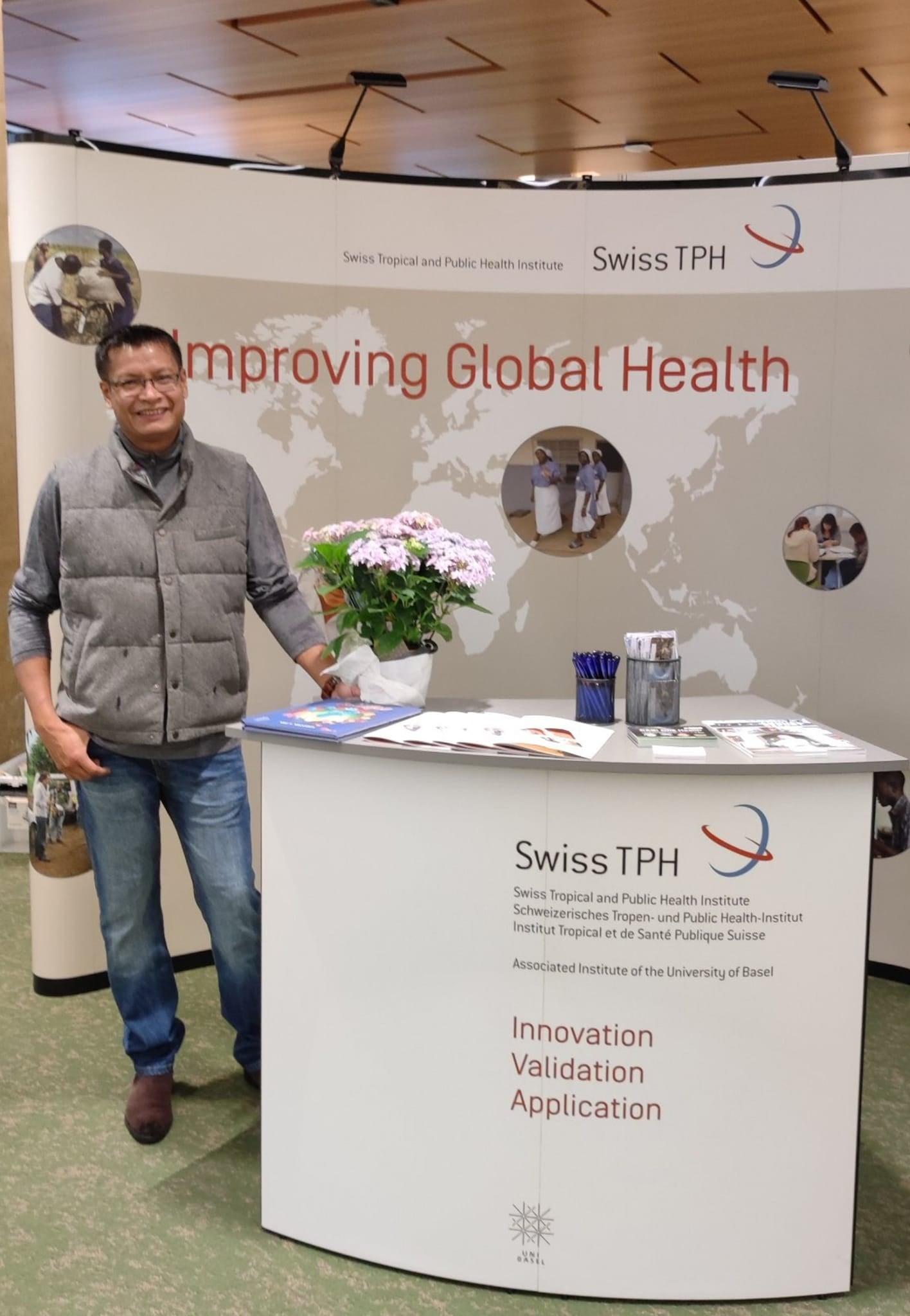

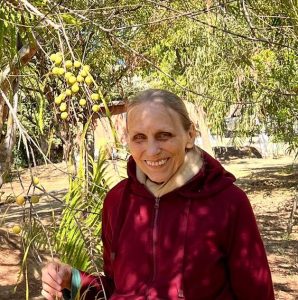 Ayo Oum Shanti[/caption]
Ayo Oum Shanti[/caption] One of the ghats of the Ganges in Varanasi[/caption]
One of the ghats of the Ganges in Varanasi[/caption]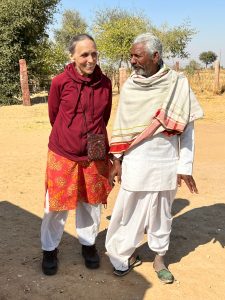 Ayo with a person from rural Rajasthan, India[/caption]
Ayo with a person from rural Rajasthan, India[/caption]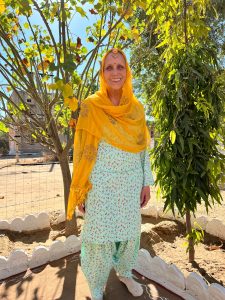 Ayo in Rajasthani attire[/caption]
Ayo in Rajasthani attire[/caption] Ayo in Kochi[/caption]
Ayo in Kochi[/caption]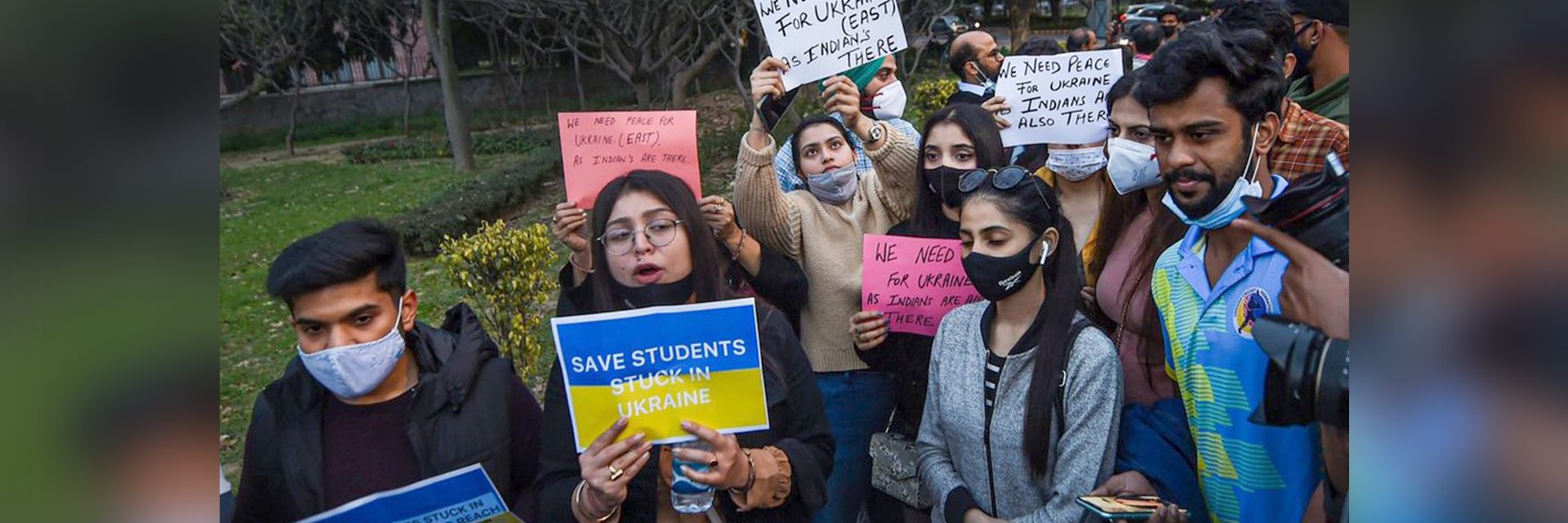
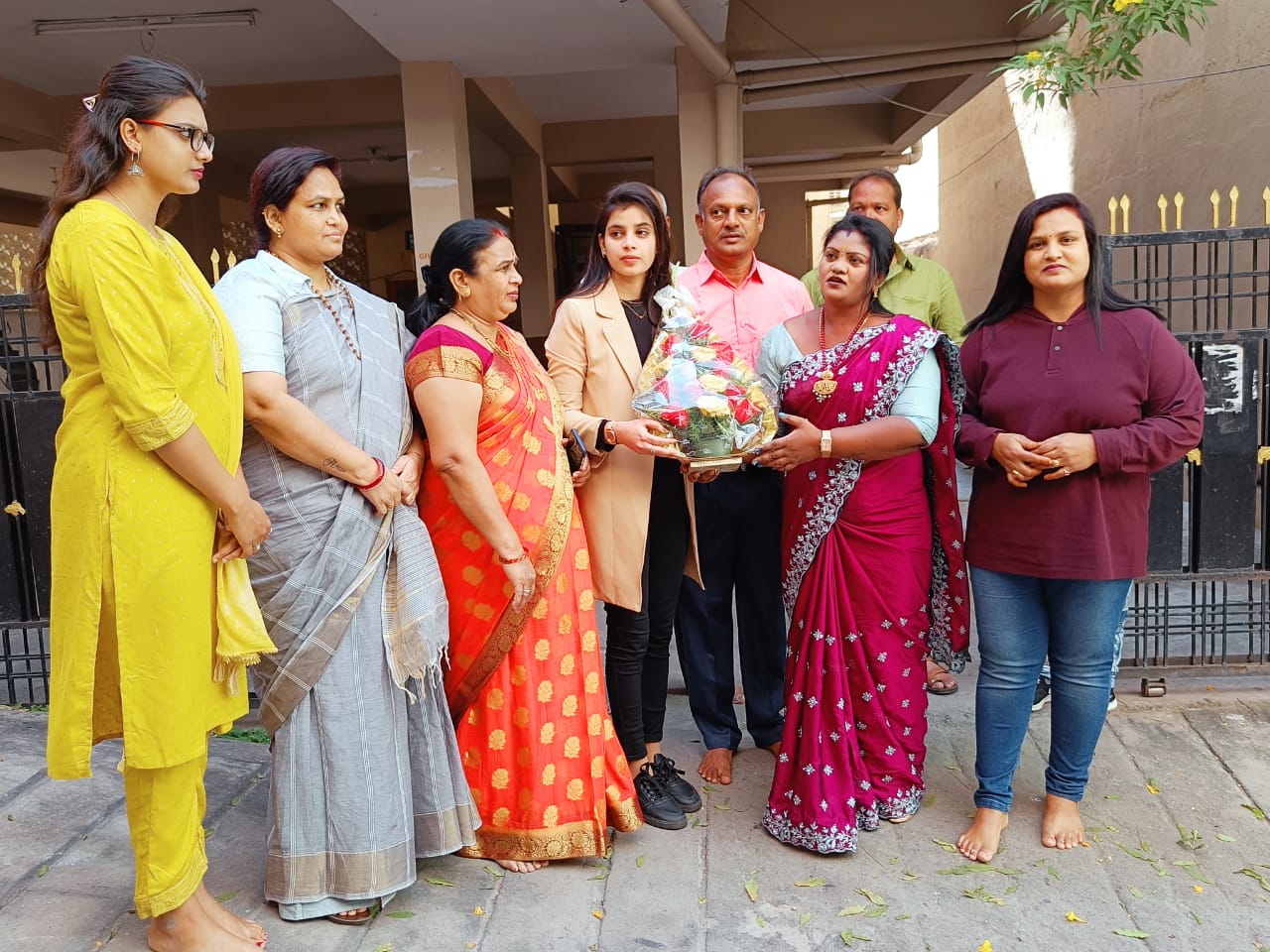 Priyanka L with her family in India[/caption]
Priyanka L with her family in India[/caption]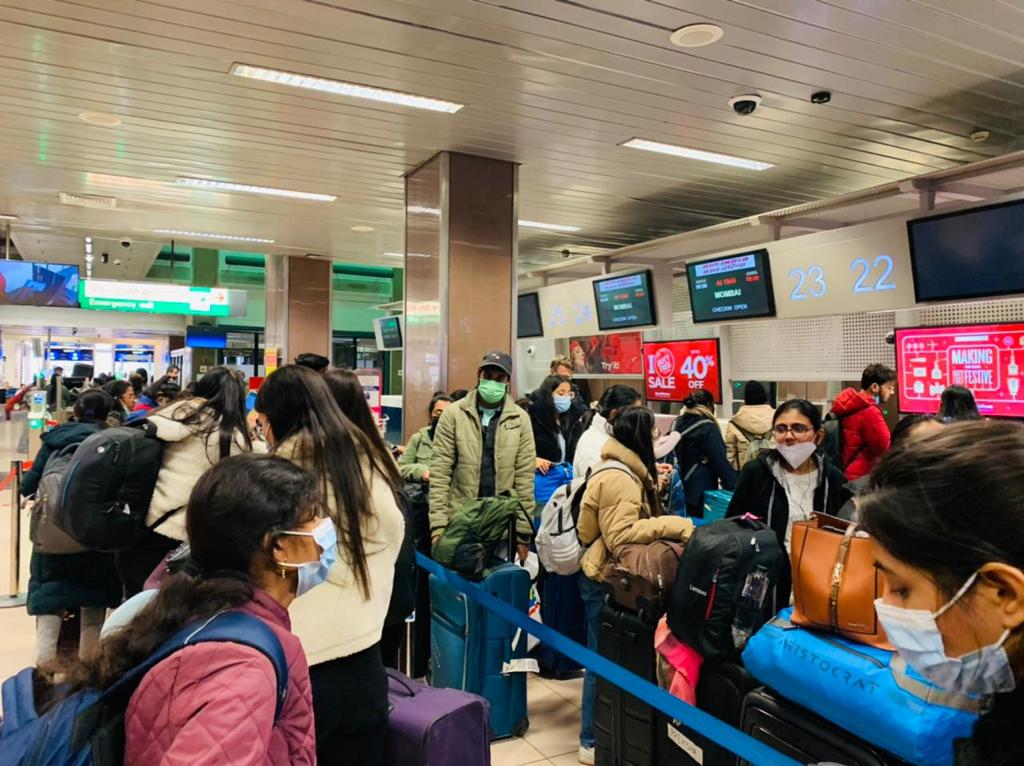 Indian students boarding the flight to India from Romania[/caption]
Indian students boarding the flight to India from Romania[/caption] Indian medical student Shylaja in Ukraine[/caption]
Indian medical student Shylaja in Ukraine[/caption]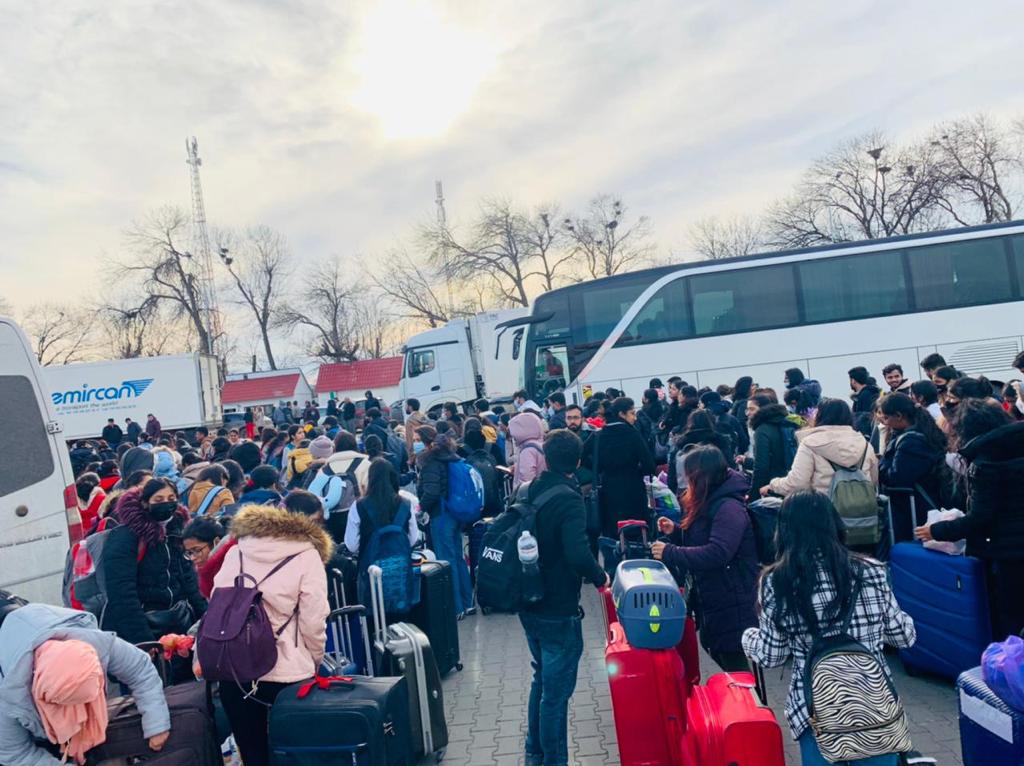 Indian medical students being evacuated from Ukraine[/caption]
Indian medical students being evacuated from Ukraine[/caption]
Mr. Srivyal Vuyyuri’s dedicated service to social causes, especially the education of underprivileged children is commendable. He and his family deserve all the encouragement and support to do more. Wishing him, the students and staff of Sphoorti Campus School at
Dundigal, all the best.